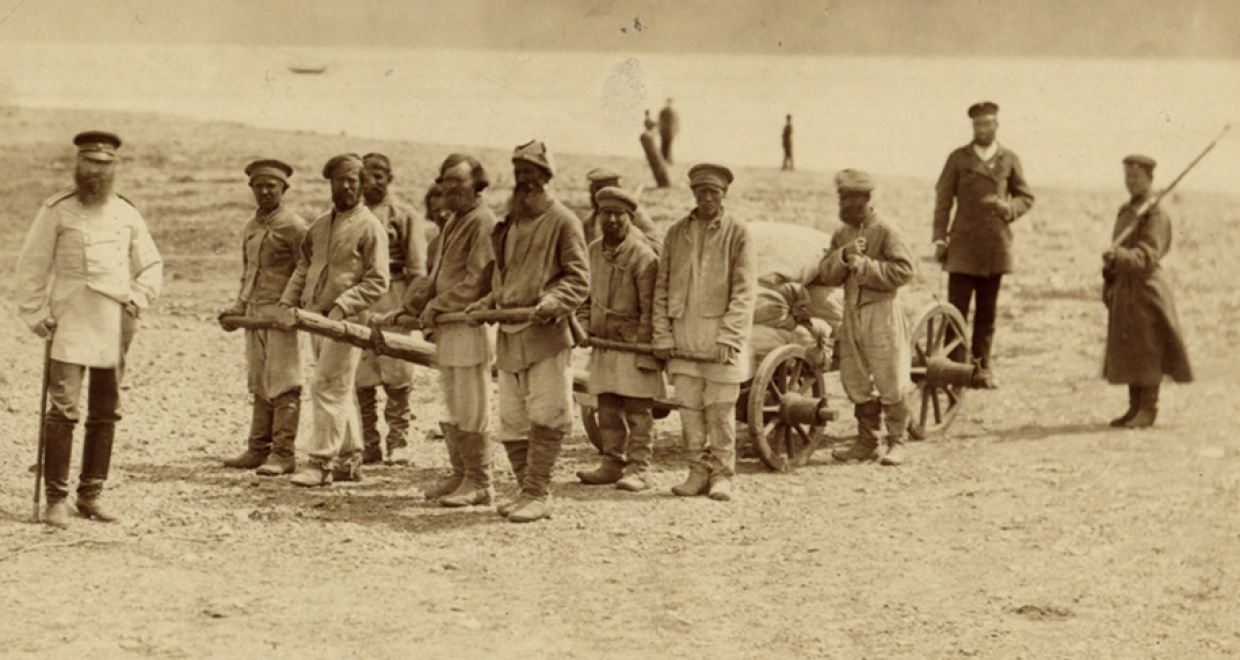Convict labour and penal transportations in the history of 19th and 20th centuries empires
In public memory, the history of convict labour, penal transportations and colonization is mostly associated with a number of historical stereotypes: The origins of modern Australia as a convict colony, or the notorious history of the Soviet Gulags; the forced labour camps in Nazi Germany, and the harsh, but also somewhat romanticized image of French penal colonies as pictured in the novel and film Papillon. Yet, there is a different, much broader and much more analytical, history to be told about punitive transportation, deportation and exile.
‘Transportation, Deportation and Exile: Perspectives from the Colonies in the Nineteenth and Twentieth Centuries’ offers a global history of convicts and penal colonies from a new perspective. During the nineteenth and twentieth centuries, colonial powers reconfigured their empires, not only by increasing the number of and the competition for territories that were colonized, as with the Scramble for Africa, but also by strengthening the grip on colonies and their populations. This collection, published as the latest Special Issue of the International Review of Social History, shows that the introduction and intensification of penal relocations and associated extractive convict labour was a central element in this process. Moreover, it takes the perspective from the colonies, rather than the ‘metropole’, or the centres of the imperial powers. Such a perspective radically transforms accepted narratives of the history of empire, the history of punishment, and the related labour history.
Guest editors Christian G. De Vito, Clare Anderson, and Ulbe Bosma have brought together ten contributions that range across the global contexts of Africa, Asia, Australasia, Japan, the Americas, the Pacific, Russia, and Europe, and cover practices of administrative and penal relocations in the British, Dutch, French, Japanese, Russian, Portuguese, Spanish, US, and Italian empires. Taken together, the essays highlight that the punitive relocation of colonial subjects enabled imperial modes of governance and population control, and the relocation of convicts served the purpose of empire-building. Millions of Europeans were sent to the outskirts of colonial empires, and empires moved colonially convicted imperial subjects around colonials peripheries to populate sparsely or non-settled territories, and to provide the much-needed labour power. At the same time, by taking the perspective of the colonies, rather than that of the colonizing empires, this volume highlights the dual character of convict mobility: both a means of imperial expansion and consolidation, and a means of creating new forms of spatial distinction, as the routes of transportation, deportation and exile were determined by a hierarchically ordered relationship between different parts of the empire.
The history of punishment has long been dominated by the well-known story of the demise of corporal punishment and the rise of penitentiary systems since the end of the eighteenth century, based on Foucault’s Eurocentric view of a linear development culminating in the “triumphant prison” in the nineteenth and twentieth centuries. This volume builds on a new body of literature and research that points to the connectivity and interdependence between the evolution of punitive regimes, colonial labour mobility, and empire- and nation-building. Looking at and from the colonies, the contributors integrate discussions about the flows of convicts sentenced in the framework of criminal justice systems (penal transportation), the mobilization of individuals through special laws and orders (administrative deportation), and the relocation of military and non-military individuals by means of military courts and authorities (military deportation), collectively referred to as “punitive relocations”. This enables them to interrogate the relationships between punitive practices and their links with legal cultures, criminological knowledge, strategies of social and imperial control, and labour extraction. But it also creates a lens on how punishment in the colonies was only marginally, if at all, related to imprisonment, because capital and corporal punishment and penal servitude continued to play a central role. By showing the ongoing significance of penal mobility as a mode of punishment, in lieu of exclusively conflating in a Foucauldian way penalty with incarceration and immobilization, this volume argues there is more fluidity between penal transportation and incarceration than has been hitherto appreciated. Moreover, it shows that there is more historical precedence and continuance in the practices of penal transportations to territories outside the jurisdiction of imperial parliaments than we may realize. These issues and their historiographical context are covered in the introduction to this Special Issue, which can be read for free for a limited period.

Dr. Christian G. De Vito is Research Associate at the University in Leicester, and (starting in October 2018) Junior Research Group Coordinator at the University of Bonn.

Professor Clare Anderson is Professor of History at the University of Leicester, and Principal Investigator on the ERC funded project “The Carceral Archipelago” – https://www2.le.ac.uk/departments/history/research/grants/CArchipelago

Professor Ulbe Bosma is Senior Researcher at the International Institute of Social History, Amsterdam, and Professor of International and Comparative Social History at the Free University, Amsterdam. He also acts as associate editor of the International Review of Social History.






